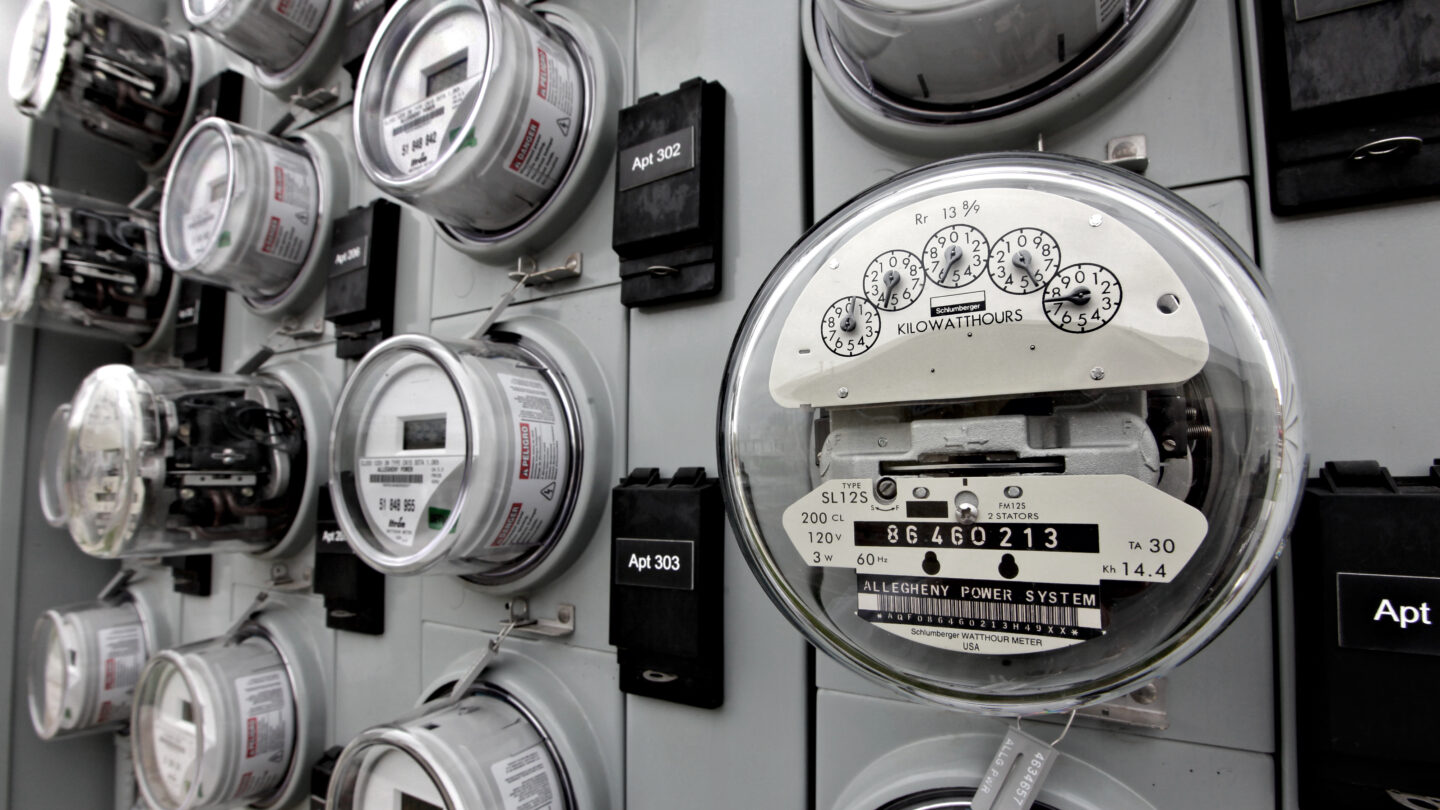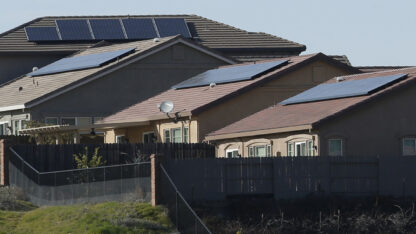This coverage is made possible through a partnership with WABE and Grist, a nonprofit, independent media organization dedicated to telling stories of climate solutions and a just future.
Georgia Power is asking to raise power bills again beginning next month. It’s the second of three increases expected for customers this year alone.
This increase, which could be close to $16 a month for a typical residential customer, comes just as the summer starts to heat up, a time when bills typically increase as customers run fans or air conditioning to stay safe and cool.
On Tuesday, the Georgia Public Service Commission heard testimony on Georgia Power’s request. Ratepayers pleaded with the Commission not to add more to their bills.
“Do you know how many people I have buried who have suffered from heat?” asked Juanita Dixon, who traveled from Savannah to speak during the public testimony portion of the hearing. “Who can’t even afford to buy their medicine? Who cannot even afford to pay their rent?”
Georgia Power says it needs to charge more to make up for the rising cost of natural gas. The fuel cost recovery proceeding is designed to reconcile the true cost of the fuel used to make electricity with the amount customers have paid, an amount set every two years based in part on projected costs.
Sometimes, fuel costs are low and the utility credits the excess it collected back to customers. But during this cycle, natural gas costs skyrocketed, and Georgia Power now says it’s about $2.6 billion short.
Under an agreement with the Commission’s Public Interest Advocacy staff, the utility would collect all but $7 million of that shortfall.
If approved, it will add about $15.90 per month to the typical residential customer’s bill beginning in June, slightly less than Georgia Power initially asked for.
The agreement would also increase the fuel discount that income-qualified senior citizens get from $6 to $8 per month, pushing the total monthly senior discount to $32.
If the commission approves the current proposals, the monthly bill for a typical residential customer would climb to $147.50.
That’s still too high for many who spoke at Tuesday’s hearing.
“Let’s think about ways to lessen energy burden instead of heaping more burden on people, working-class people,” said Wanda Mosley of the Black Voters Matter Fund.
Atlanta ranks high nationwide for its energy burden – the percentage of household income spent on energy.
Georgia Power customers saw their bills go up at the beginning of this year, by about $3.60 for the typical residential customer, after the Public Service Commission approved rate increases over the next three years as part of a different regulatory proceeding. Bills will likely increase again later this year as the first of the long-delayed new nuclear reactors at Plant Vogtle goes into service.
Commissioners argued in the hearing that with this increase, their hands are tied; state law allows Georgia Power to pass fuel costs on to consumers. But several witnesses stressed that the law doesn’t require customers to shoulder the entire cost.
“Why do you justify these increases as though there are no options?” asked Atlanta resident Sherri B. Williams. “There are always options for those in leadership who choose to do the right thing.”
One such option, proposed by energy consultant Jeffry Pollock on behalf of the Georgia Association of Manufacturers: spread the payments out over a longer period. He argued that the company could charge less per month by recouping the cost over five years instead of three.
“Economically speaking, consumers are better off letting the company carry the balance for a longer period than for consumers to pay it off quicker,” Pollock said.
“With the perfect storm of rate cases and increases now upon us, the commission really has an opportunity to mitigate and help consumers to adjust to the much higher electricity rates more gradually.”
Others called for the company to take on a fixed percentage of fuel costs rather than an amount negotiated after the fact.
“There’s just no economic consequence or incentive to more aggressively manage fuel costs” under the current system,” said Jeremy Kalin, who testified on behalf of the Sierra Club and the Southern Alliance for Clean Energy.
If Georgia Power were required to share fuel costs and knew that going into its planning process, he argued, the utility would have the incentive to keep fuel costs lower. One way to do that, Kalin said, is to rely more on renewable energy, like solar paired with battery storage.
Instead, several witnesses noted, in the last round of long-term planning last year, Georgia Power and the Public Service Commission doubled down on natural gas, approving six new agreements to purchase power from gas-fired plants. Natural gas prices had already spiked at the time, and the utility and regulators knew the fuel cost recovery process was on the horizon.
Commissioners expressed skepticism about the proposals to deviate from the agreement between their staff and the utility, though they won’t finalize their decision until they vote on May 16.
The commission is considering this rate increase as their own elections remain in limbo. Two commissioners, Tim Echols and Fitz Johnson, were up for reelection last November.
But a federal judge blocked that election pending the outcome of a lawsuit alleging that the PSC election process discriminates against Black voters. If the lawsuit succeeds, the election system will get an overhaul.
In the meantime, Echols and Johnson remain on the commission.









